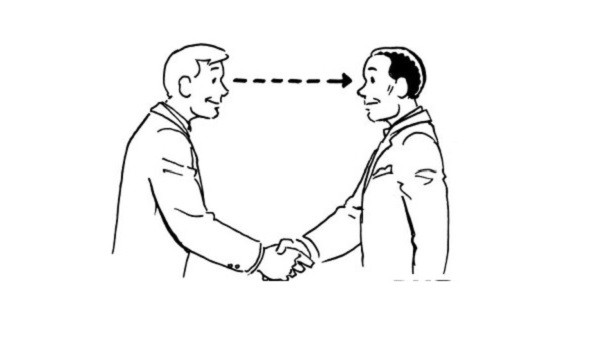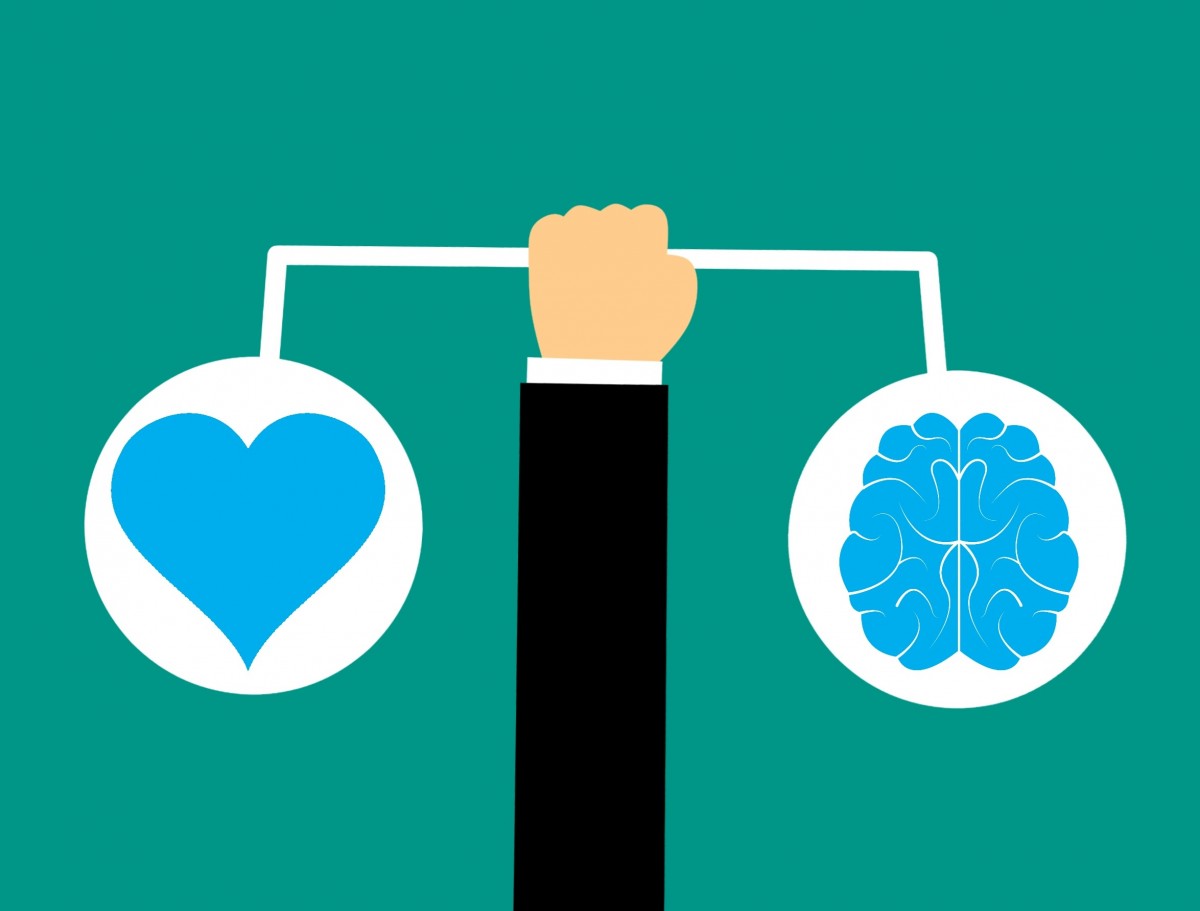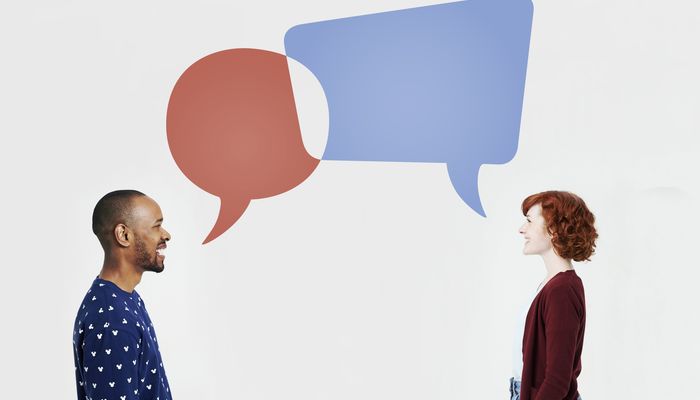Have you ever felt frustrated and stressed out when the other person just can’t seem to understand your point as you were unable to effectively communicate it to others? It is equally stressful for the receiver as well!
To ensure that you don’t get in such a stressful state, effective communication is needed! Read our article until the end for an in-depth understanding of effective communication and some bonus tips at the end!
This is the game plan of the article:
- What Is Effective Communication?
- Effective Communication And Stress: An Inverse Relationship
- Reasons For Ineffective Communication And How To Prevent It
- Effective Communication Skills: What Are They And How To Improve Them?
- How To Communicate Effectively At Workplace?
- How To Communicate Effectively In A Relationship?
- How To Communicate Effectively On Stage Under Stress
- To Conclude
What Is Effective Communication?
The word effectively means successfully. Hence, effective communication happens when you communicate your message successfully and efficiently to others.
However, it is not just a speaking skill. It requires good listening skills with correct usage of body language as well.
Good speakers are orators, but good listeners make great communicators as they listen to the other person’s point of view with patience and later convey their message, acknowledging the other person’s viewpoint.
This is the reason why psychologists are trained in listening so that they can understand the message and communicate clearly and inclusively.
You may wonder why is effective communication so important and how is it related to stress? Isn’t it just talking with others?
Here’s the reason why this is not true.
Effective Communication And Stress: An Inverse Relationship
Think about it. If you couldn’t communicate your message or ideas to others around you, how would you feel?
You would probably feel stressed out about why nobody can understand you. You may also find yourself fighting and quarreling, trying to prove your point to others.
Effective communication becomes important as it can avoid misunderstandings and possible arguments. When you communicate effectively, the other person understands the message completely, avoiding making any misinterpretations.
You notice less stress or repressed anger towards others and yourself as you don’t carry any guilty feelings or worry about confronting others later.
Hence, it is important in every aspect of life! Whether you are working, are among friends to hang out with, or are with family, effective communication increases the quality of your relationships.
Reasons For Ineffective Communication And How To Prevent It
Ineffective communication can take place due to several reasons, such as physical barriers or distance between the speaker and receiver, differences in language or culture, or even psychological barriers like having a closed mind or the receiver’s current mood.
We have written an in-depth article on ineffective communication and how to avoid it, giving contextual tips related to the workplace, life in general, and many more.
If you are interested to learn more about the reasons and ways to overcome ineffective communication, click here: Ineffective Communication Explained: And How To Avoid It.
Let us now see which skills are necessary for effective communication.
Effective Communication Skills: What Are They And How To Improve Them?
Skills are not something one is born with. We have to build them through practice. Following are the 5 skills for effective communication.
Active Listening

As mentioned earlier, listening is the most important skill when it comes to communication, especially in an argument.
Now, you might wonder what is the big deal with this skill? Isn’t it just hearing?
You are wrong! Listening is different from hearing!
What Is Listening?
Hearing is just the perception of sound through the ears whereas listening is something you do consciously. It requires your brain to concentrate to understand the meaning of words and sentences.
In other words, hearing is just a physiological phenomenon, whereas listening is the interpretation of those sounds.
To improve your listening skills, here’s what you need to focus on.
Listen actively: But How?
Active listening is essential to have a meaningful conversation.
Listening actively involves paying attention to the speaker and the general mood or atmosphere to better understand the message. For example, is the person behaving differently than usual, or is the speaker happy or gloomy today by their body language.
You need to discern the tone of the message being received and interpret it accordingly to avoid misinterpreting the information.
You also need to show that you are listening! You might be paying attention while doing something else, but the speaker often misinterprets as you not caring about them!
This happens a lot when someone is speaking and you look at the phone or laptop. The speaker feels you are uninterested or bored, even though you are listening.
It is, hence, important to maintain eye contact and show interest by a slight nod or giving slight reactions whenever you feel it is necessary.
Lastly, if you don’t understand what the speaker meant, just ask them! It saves you from a lot of misunderstandings!
It will reduce your stress and improve your relationship with the other person if you do so since you clear your doubts at that given moment and not load it on your back and waste your time in overthinking.
Active Speaking

Speaking is the act of conveying your thoughts out to others verbally.
It is an important skill as by speaking effectively, you can build and maintain connections, formal as well as informal.
To improve this skill, you need to simply speak!
Many people struggle to get their thoughts across out loud, I am also one of them!
But worry not! Here are some tips to speak in a better and effective manner!
- Use inclusive language: Speak in a manner that is understandable by receivers. If you speak using jargon or field-specific words, your receiver will likely not understand it.
- Ask for feedback: After you have finished speaking, ask the other person whether they understood completely or not. This works well for workplace settings if you want to make sure that your colleague or client understood your message or not.
- Read the receiver: Pay attention to how your receiver is reacting and try to read their body language. Sometimes you can make out by just looking at their expressions whether they understood or not.
- Speak louder: Try to speak audibly to avoid making the listener uncomfortable for asking to repeat again and again. Speaking loudly also conveys that you are confident. If you are one of the people who can’t talk louder and want to do so, check out our article on 9 Exercises To Make Your Talk Louder.
Physical Cues: Importance Of Body Language In Effective Communication
Did you know that body language or non-verbal communication makes 65% of all communication?
It is indeed true that actions speak louder than words!
But what are these actions? Let us take a look at them one by one.
Facial Expressions

Did you know that there are 7 universal facial expressions? This means that wherever you go, they have the same meaning!
We all can tell by other people’s facial expressions whether they are happy, sad, scared, disgusted, angry, content, or surprised.
However, the level of expression depends from individual to individual. Some people show everything on their faces while others prefer to stay away from it and conceal it.
But we can understand them through other signals such as their tone of voice.
Tone Of Voice

Whether or not the other person shows emotion or not, generally they cannot hide it in their tone of voice.
The tone of voice is how you speak. It could be neutral, casual, formal, serious, respectful, enthusiastic, or irritated.
Your tone of voice can lead to misunderstandings, if not controlled or used in the right context.
For instance, it is highly disrespectful to speak with an enthusiastic or casual tone when the occasion is a sad one. People will interpret it in the wrong light even if your message was proper.
Eye Contact

Eye contact can determine the quality of your conversations!
If you don’t maintain eye contact, you miss out on many things.
You can’t read the other person’s expressions and body language, plus the other person misinterprets your lack of eye contact as being rude or uninterested!
When you maintain eye contact, the other person feels heard and acknowledged, improving the quality of your communication and reducing stress too!
Gestures And Posture

Lastly, gestures and postures make the most visible signs after facial expressions.
They mostly consist of hand and body movements, such as a wave or a hug to greet close friends and family, or shaking hands or bowing to the other person in formal settings.
You can tell if the other person has not understood a message when they take some time to react, scratch their heads, or stroke their necks.
Tapping feet or making constant movements indicate nervousness or uneasiness. If you want to know more about what can be interpreted as nervous body language, check our article on 10 Tell-Tale Signs of Nervous Body Language (And What You Can Do About It).
If someone is sitting in an upright but stiff posture, it can mean that they are alert but highly conscious, whereas relaxed shoulders with a straight posture can mean that they are comfortable.
If you want to learn about the nuances of body language and how it contributes to communication, check out our article on Body Language And Its Contribution To The Process Of Communication.
All You Need To Know About Stress Management

It is natural to feel stressed, as everyone is dealing with keeping their lives intact amidst the pandemic.
However, stress can interfere with how you communicate.
How Stress Affects Communication Skills?
When you feel stressed, your brain is occupied with dealing with and overcoming the stressor, and you don’t pay attention to what you say or how you say it, hurting the other person, resulting in even more stress!
It can also have negative impacts on your overall physical and mental well-being.
Hence, it is essential to manage your stress effectively to communicate effectively.
Importance Of Effective Communication In Stress Management
Effective communication is a helpful tool in stress management.
When communication is open and clear, small problems get resolved quickly and easily, resulting in less stress and a healthy relationship.
However, when communication is not so helpful or becomes ineffective, even small problems may escalate to become big, and you will feel stressed out and frustrated.
Stress Management Tips For Effective Communication
You can implement these tips to manage your stress and communicate effectively.
- Invest in physical health: If you are physically healthy, your body can resist stress to a larger extent. Hence, ensure to exercise daily and maintain a healthy diet.
- Sleep well: If you don’t get enough sleep, chances are high that you would end up getting irritated on even small things, and that will impact your communication with others. Hence, ensure to get enough sleep, especially if you have an official meeting at work.
- Practice mindfulness: Mindfulness is a type of meditation where you focus on being aware of what you are feeling and sensing at the given moment. Doing so makes the communication process effective and meaningful.
- Express your feelings: It is very important to let the other person know your thoughts and how you feel, especially if you disagree with them. Avoid repressing and being mute, as it can pile up and will burst out on unexpected occasions leading to more stress.
- Write it down: If you feel that expressing your feelings would hurt the other person, write it down on a piece of paper or better, maintain a journal. It will help in releasing your stress and you will feel better after writing your feelings down.
- Therapy: If you still feel that nothing seems to work out and are constantly under stress, it is a good option to consider going to a therapist. Since a therapist is a professional, they can guide you better than you figuring out yourself and trying different ways to cope with it.
Emotional Intelligence

Emotional intelligence measured as EQ or emotional quotient is the ability to use and manage emotions effectively.
This skill is very important for managing stress, building relationships, managing conflicts, and communicating effectively.
Empathy or the ability to understand other’s situations by keeping oneself in their shoes is a very important component of emotional intelligence. When you empathize with others, your communication skills improve as you take the perspective of the receiver and think, feel, & act like them.
Good social skills are the other component of emotional intelligence. To build and maintain good relations, social skills are essential. They are also effective in conflict management and effective communication.
Self-regulation is the last component that makes emotional intelligence. It means controlling your emotions and managing them according to a given situation. When it comes to communication, self-regulation becomes important to manage conflicts.
To improve your emotional intelligence, follow these tips:
- Pay attention to your emotions: To manage emotions, it is important to acknowledge them first. Avoid neglecting them for longer periods of time. If possible keep an emotional journal, where you write your emotions down daily.
- Observe your actions: Observe how you react to others and reflect on them. Doing so can avoid conflicts while making amends to be a better communicator. Moreover, before taking any action, think about how it will impact others.
- Be assertive: Being assertive can lead you to communicate your perspective to others. However, it does not mean dominating and being aggressive to others.
- Avoid being impulsive: When you take impulsive actions, you don’t really think about the consequences carefully. If you take more time, you can make effective choices. The same applies when it comes to communication.
How To Communicate Effectively At Workplace?

Business communication can be tricky for some employees as it is not a widely taught subject. Communicating effectively at the workplace can be stressful at first, especially for the new employees as they are unaware of the way the company works and communicates yet.
How Does Stress Affect Communication In The Workplace?
Workplaces can cause stress and anxiety to their employees if there is no effective communication in place, as no one has a clear idea of what’s going on or what are they supposed to do.
Lack of proper communication impairs work performance and decreases overall productivity as well.
Stress leads to a lack of concentration, motivation, and decision-making capability, all essential components to work and communicate effectively.
There are a lot of barriers that can prevent effective communication. To know more about them, check our in-depth article on Barriers to Communication in the Workplace.
How To Communicate Effectively At The Workplace
To communicate effectively at the workplace you must incorporate these tips:
- Be direct: If you tend to beat around the bush, the other person won’t be able to get the exact meaning of your words. Instead, be direct in the way you communicate. It will also save time for you and your colleagues.
- Be concise: This is connected to the first point, but there is a subtle difference. Being concise requires you to speak in the shortest and most effective way possible.
If you go on and on endlessly about your next project or worse, give a lengthy presentation about your project idea, chances are high that your audience won’t pay attention after a certain point.
However, if you are to the point and concise in your communication, you will effectively deliver your message to your colleagues.
- Include the 5Ws: If you are at a higher post and you want to communicate an order to your junior employees, include the 5Ws, i.e., who, what, where, when, and why.
If you don’t answer the above information, the message would be too vague. For instance, you want to give notice about an important meeting.
If you don’t answer “when is the meeting” or ” where is the meeting”, your juniors would be unsure of the complete message.
5Cs Of Effective Communication At The Workplace
If you want to communicate effectively and reduce stress at your workplace, include these 5Cs:
Conciseness
To be concise is sticking to the point and not beating around the bush, especially if you are in midst of an argument.
If you speak at a larger stretch without giving the other person a chance to speak, it becomes a monologue or worse, a rant session and not a dialogue, resulting in ineffective communication and stress.
Hence, keep your conversation brief and short.
However, to be concise you need to first be clear with what you want to communicate to the other person. If you yourself are unclear or unsure of what to say, pause and think of a better way of framing your message.
Completeness
To deliver a complete message, you need to check whether you answer the 5Ws: who, what, where, when, and why.
If you don’t answer the above information, the message would be too vague and incomplete.
Suppose you want to give a notice about an important meeting.
If you don’t answer “when is the meeting” or ” where is the meeting”, your juniors would be unsure and highly confused about the complete message.
Correctness
The most important C of effective communication is to be correct.
This is not the same as being right or wrong, but about being factual or truthful.
Correctness in communication extends to how you speak in a given context, your grammar or sentence structure, and body language.
All should align correctly to communicate effectively, especially if you are about to give an interview or are in a meeting with your client.
Courteousness
Being courteous or respecting the other person is also an important component of effective communication.
Be polite and try to frame the message keeping in mind the listener to avoid misinterpretations and unnecessary arguments.
If in formal settings, avoid slang and accusatory language.
If possible try to empathize with the other person and be sincere.
Clearness
Clearness refers to the level of clarity in a conversation.
Understanding a clear message is much easier and quicker than a vague or lengthy one.
It also creates less stress for both parties and saves time as well.
To communicate clearly, you need to know the receiver, and what their knowledge base is like.
If you know this beforehand, you can frame the message according to the receiver’s frame of understanding, making your message more clear and relevant to the listener.
How To Communicate Effectively In A Relationship?

Effective communication leads to a healthy relationship, be it with your friends, family, or loved ones.
Criticizing or belittling each other, getting defensive, or passive aggression is the result of a lack of effective communication.
How Does Stress Affect Communication In Relationships?
Often people bottle up or keep their stress to themselves.
Not dealing with stress can create a negative cycle where partners “catch” each other’s stress.
The other person keeps thinking about what is wrong with their partner or whether they have done something wrong.
This unsaid tension keeps building up, and leads to outbursts of arguments and anger, negatively impacting relationships.
Effective communication can help avoid such misunderstandings and awkward silences.
Ways To Communicate Effectively In A Relationship
To communicate effectively in a relationship, inculcate these tips in daily life:
- Listen: If you go back to the point of active listening, you will realize how important it is to listen well, especially in a relationship. When the other person feels heard, they get attached to you even more, as they know they have someone to rely on.
Listening can also avoid conflicts and increases empathy towards others.
- Use I and Me: If you are upset about the behavior of others, avoid accusing them directly. If you point your fingers at them, they are likely to become defensive and would not listen to your perspective.
Hence, make the conversation about you and not them. For instance, instead of saying “You always…” or “You never understand…”, try using ” Lately, I’ve been feeling…” or “I’ve noticed…”.
The meaning would be the same, but the manner would make it less accusatory.
- Give them your time: Spending time with your loved ones increases your bonding with others.
Even if you spend 30 minutes of your time having dinner or doing something you both love or even sharing chores, it opens the channels of communication and deepens your relationship, minimizing stress between you and your partner.
If you live far away, a phone call or video call once a week or month can cover up the distance for you!
- Positive body language: Go back to the section on physical cues. You might realize that even if your words and manner of speech are positive, your actions could make the whole message negative or accusatory.
Give them enough eye contact, nod when they ask a response, lean towards them, and if the occasion permits, smile!
Doing so would convey that you are curious to know what the other person is saying and that you are interested and alert in the conversation.
The last tip to communicate effectively in a relationship is to communicate and not simply converse.
There is a difference between communicating with someone and having a conversation. Communication makes the conversation meaningful and effective.
To know about the exact differences and which one is more effective, read our article on Communication Vs Conversation: What Are the Differences?
How To Communicate Effectively On Stage Under Stress

Stress is normal before giving a speech on stage in front of a large audience.
However, it can impact your communication skills and all your practice can go to waste if you don’t deal with it beforehand!
How To Deal With Stress On Stage
Here are some tips to help calm your nerves before, during, and after your performance on stage.
Before going on stage
- Rehearse well: If you know your content well, you feel confident and less stressed. Hence, practice a few times till you know the structure and basic flow of your performance.
Don’t try to mug up the script as it will make you more stressed, as you would be preoccupied with whether you would be able to say everything in the script, creating anxiety.
- Breathe deep: When you are stressed your heart rate shots up, and you get even more stressed at the thought of your body reacting to stress.
Take 2-3 minutes out and breathe slow and deep. It will bring your heart rate down while making you calm and ready for your performance.
On Stage
- Focus on your content: Most people feel stressed out when they step on the stage at the sight of an audience watching them.
However, focus on your content and not on the audience. This would make you less stressed and more comfortable on stage.
- Speak slowly: Speaking slowly will help to calm your nerves and will also ensure your audience is able to hear and understand you clearly.
If you speak fast your audience can interpret as you being anxious and stressed out.
Hence, take it slow.
After your performance
- Speak to your audience: While it is difficult to interact with each and every one when on stage, you can talk with some of them backstage or when the event is over.
This will help you in taking valuable feedback from the audience and improve your upcoming performances in the future!
- Celebrate: Even if you made a mistake or felt that you could’ve done better on stage, celebrate!
Don’t think that celebration is done only when you give a fantastic performance or speech. Celebrate and acknowledge your efforts and hard work.
It will give you a fresh start and a clear mind for your next performance!
To Conclude
Hope that this article gave you some insights into how you can communicate effectively!
If you implement the tips given, I’m sure you would improve your communication skills!
Happy learning!





